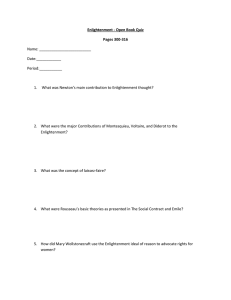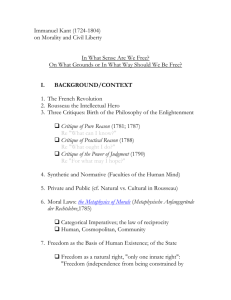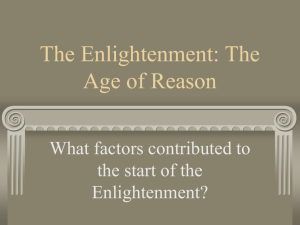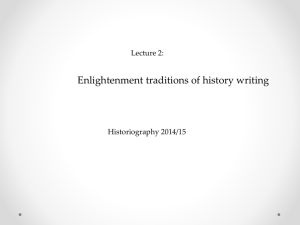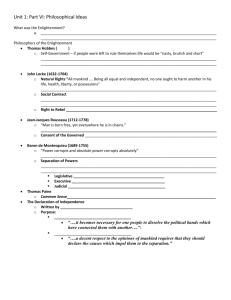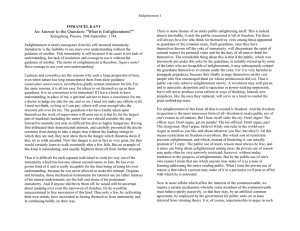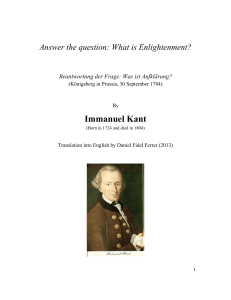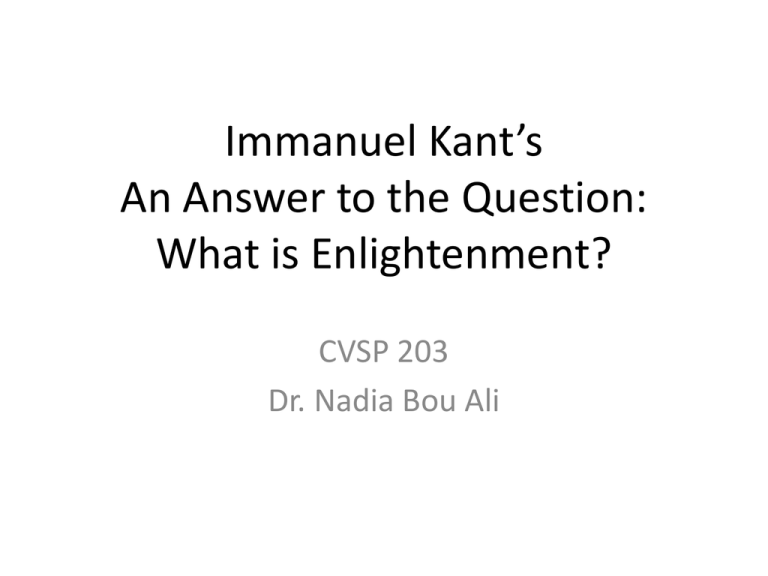
Immanuel Kant’s
An Answer to the Question:
What is Enlightenment?
CVSP 203
Dr. Nadia Bou Ali
What is Enlightenment?(1784)
• Think for ourselves
• Think from the standpoint of everyone else
• Think always consistently
– understanding+ judgment= maxim of reason
Kaspar Hauser by Werner Herzog
(1974)
https://www.youtube.com/watch?v=C9uqPeIYM
ik
The Parallax View of Enlightenment
Critique versus Reflection:
Diego Velázquez’ Les Meninas (1656) and Rene Magritte’s The Human Condition
(1933)
painting as window and not as mirror, thought is not mere representation
Enlightenment not only as an image of Light but of speech
and discourse: (selections from Kant’s What is Enlightenment?)
Enlightenment is mankind’s exit from self-incurred immaturity. Immaturity is the
inability to make use of one’s own understanding without the guidance of
another.
I have a book that has understanding for me, a pastor who has a conscience
for me, a doctor who judges my diet for me, and so forth, surely I do not
need to trouble myself. I have no need to think, if only I can pay; others
will take over the tedious business for me. Those guardians, who have graciously
taken up the oversight of mankind, take care that the far greater
part of mankind (including the entire fairer sex) regard the step to maturity
as not only difficult but also very dangerous .
Oedipus and the Sphinx, Gustave Moreau , 1864


